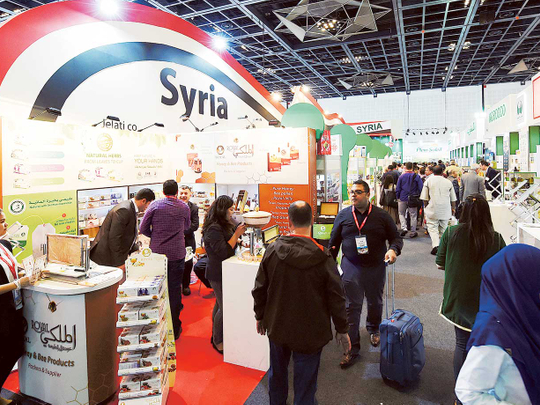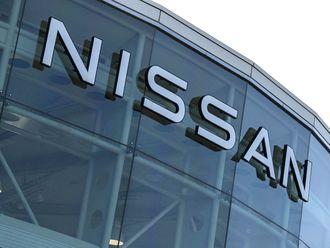
Dubai: After nearly five years of civil war, Syrian businesses are looking for new export markets as the country’s crippling economy and infrastructure makes it increasingly difficult to operate.
Syria’s economy has contracted by as much as 60 per cent since the conflict began in the spring of 2011, according to a report released by British think-tank Chatham House in 2015.
The country’s workforce is dilapidated as millions have been left displaced while farms, factories, roads and other important infrastructure has been damaged or destroyed as a result of the fighting.
Tarek Nabeel, who works at Rostum Trading Company in Lattakia, northern Syria, told Gulf News the agriculture commodities company wants to start shipping to the Americas, Africa and Iran. It already sells its products, such as cumin and pistachios, to countries in the Middle East and Europe.
But Rostum faces “logistics issues because of the crisis”, Nabeel said.
One of its factories in Idlib was destroyed in the fighting and exports have roughly halved to between 20 and 25 containers a month.
“Due to the Syrian crisis our export decreased in the recent years because of the difficulty getting the stuff from the farmers,” Nabeel said.
The war has meant that many parts of the country are cut off from each other while some farms have been abandoned as millions flee the fighting.
Rostum is one of 20 Syrian wholesale food sellers in Dubai this week exhibiting at the Middle East’s largest food and hospitality trade show Gulfood.
East Mediterranean Olive Oil Company (Emoc), a Spanish-owned Syrian company, was forced to move its offices from Idlib to Latakia because of the conflict.
Emoc relies on foreign markets with exports accounting or 97 per cent of its businesses. But with a collapse in the Venezuelan economy, its single largest market, General Manager, Suhail Shammas, said the company is now trying to get into Chile, Brazil and Iran.
Unlike Rostum, Shammas said business is improving with 14 containers exported so far this year, which he said is more than last year when there “were a lot of problems” near its factory in Idlib.
“Of course, in our situation — in a war — it’s not as it was ten years or seven years ago but we are still alive and we are still working and we are still exporting,” he said.
Natural Max General Trading, a honey-maker from Syria exhibiting at Gulfood this week, opened a manufacturing factory in Dubai in 2010, a year before the civil war started. The company uses the Dubai factory to manufacture goods that use materials that cannot be found in Syria while also continues to run a factory in Damascus.
Ammar Al Masri, the company’s marketing manager, told Gulf News he wants to enter the US market while adding that the Syrian crises has made it difficult to get goods in and out of the country, making the Dubai factory increasingly important.












